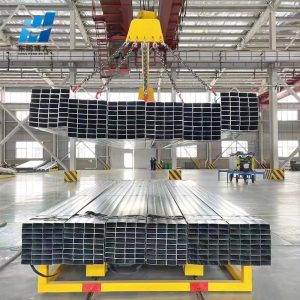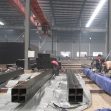Steel industry can challenge difficult problems
The steel industry, a vital pillar of global economic development, often faces complex challenges that require innovative solutions. From fluctuating demand of black iron steel pipe to environmental concerns and technological advancements, the steel industry must navigate a diverse array of difficult problems. This article highlights some of the key challenges faced by the steel industry and explores how it can overcome them through strategic approaches and collaboration.
Fluctuating Demand:
One of the significant challenges for the steel industry is managing fluctuating demand. Economic cycles, geopolitical factors, and industry-specific trends can lead to volatility in steel consumption. To address this challenge, the industry must focus on diversifying its customer base, exploring new markets, and adapting to changing consumer preferences. Additionally, fostering strong partnerships with downstream industries can help create stable demand and ensure a more resilient steel market.
Environmental Sustainability:
As environmental concerns continue to gain prominence, the steel industry faces pressure to reduce its environmental footprint. The production process emits greenhouse gases, consumes significant energy, and generates waste. To tackle these challenges, steel pipe suppliers are investing in cleaner technologies, adopting energy-efficient practices, and implementing recycling initiatives. Embracing sustainable production methods not only helps meet environmental targets but also enhances the industry’s reputation and competitiveness in a rapidly evolving market.

Technological Advancements:
The steel industry is experiencing a wave of technological advancements that present both opportunities and challenges. Automation, artificial intelligence, and digitalization are transforming production processes, improving efficiency, and reducing costs. However, adopting and integrating these technologies into existing operations can be complex and requires significant investments. The industry must embrace innovation of conduit pipe, promote research and development, and upskill its workforce to leverage the potential benefits of emerging technologies.
Trade Wars and Protectionism:
Global trade tensions and protectionist measures pose challenges for the steel industry. Tariffs, trade disputes, and anti-dumping investigations disrupt supply chains, create market uncertainties, and impact steel prices. To address these challenges, the industry can advocate for fair trade practices, engage in constructive dialogue with governments and trade organizations, and diversify its export markets to reduce dependency on specific regions.
Skilled Workforce and Talent Retention:
The steel industry relies on a skilled workforce to maintain productivity and drive innovation of thinner wall steel pipe. However, attracting and retaining talent can be challenging, particularly as the industry undergoes technological transformations. To overcome this challenge, the industry must invest in training and development programs, create attractive career paths, and foster a culture of innovation and collaboration. Collaboration with educational institutions and industry associations can also help bridge the skills gap.
Tel: +86 18202256900 Email: steel@fwssteel.com










